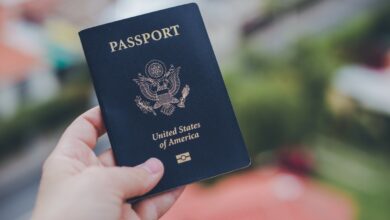A
A
A
When flying from an airport, it is not unheard of to have an unexpected layover during a trip. In the event you find yourself spending several hours waiting for a flight, here are our favorite ways to stay occupied:
Grab a Coffee or a Drink
Sit back and relax while enjoying a cup of java or a cocktail at the bar. This will give you time to think about your adventures ahead and to refine your plans.
Read More »
Stock Up On SnacksNowadays airlines don’t always provide a free meal to passengers. While at the airport, stock up on tasty edibles to avoid hunger later.
Checkout the Airport Lounges
Many airport lounges offer a quiet, laid-back environment while you’re waiting for a flight. Traditionally airline lounges were reserved for passengers of business or first class, or frequent flyers of a certain status. However, several airlines offer passengers access to a lounge for a small fee. These are typically independent lounges for any type of passenger. Independent lounges often have all-you-can eat buffets, with WiFi and carry-on luggage storage.
Dive Into a Good Book
There’s nothing quite like entering a new world by immersing yourself in an interesting novel. Escape for a few hours before returning back to reality and creating your own travel adventures.
Wander Around the Shops Most airports have a variety of shops available to suit various tastes. You can discover some pretty interesting items at many airport shops.
Interact with Other Travelers
The majority of travelers love to talk about their tour experiences. You may even encounter a passenger at the airport who has had similar experiences to your own. Discuss the destination you’re headed to or uncover details of their latest adventure. You may even learn a few flight tips.
Keep A Journal
Be as detailed as possible and include any and all valuable details about your experience. You’ll be sure to treasure your writings in the future. Whether you decide to just simply write and journal or to create a scrapbook of photos from the trip, you will appreciate being able to look back upon the memories. You might even continue your journal throughout your trip, including details about your hotel or other accommodations.
Share on Social Media
Post details of your trip online for your followers to enjoy along with you. Some airports have free WiFi while others offer WiFi for a small fee. Chat on social media and inspire others to get out and explore the world. This is a great way to get your friends and family involved in your trip. Your followers will love to see details of you trip before arriving at your hotel or destination.
Spend Time at Arrivals
What is more heartwarming than watching loved ones reunite after time and distance apart? After taking a tour of the airport, this is an excellent way to spend time at an airport before checking in and boarding your plane.
Keep these ideas in mind to help you make the most of your time at the airport. With these tips, you can successfully bridge the gap of time from departure to arrival.






